A Complete Photography Degree (As Guided by ChatGPT)
Introduction
Photography is the passion that guides my life.
I am a self-taught photographer, and I have been using Nikon DSLRs and Mirrorless camera since 2008.
I've taught myself the art of photography by reading books, taking online courses, watching YouTube videos, and years upon years of practice.
Lately, I have been wondering if I could benefit from some formal training in photography to elevate my skills. I poked around online looking for photography courses and degrees at the many universities in my area.
I found that most of these programs would cost at least $60,000 and would require me to commute to a campus for at least 20 hours a week.
I have two small children, a new portrait photography business, a Twitter empire, and very limited free time.
I wanted to find a way to guide myself towards developing new skills in photography without leaving my living room or spending tens of thousands of dollars.
An idea struck me!
What if I asked ChatGPT to teach me everything I needed to know about photography?
What if I used ChatGPT to create lesson plans, find high-quality educational resources, and guide my journey?
So that's exactly what I did!
My name is Lauren McDonagh-Pereira. I am a photographer, artist, art collector, and web3 blogger. I am passionate about emerging technologies and how they can be used to enhance our lives.
In this post, I will explain my plan to get a full education in photography using the tools provided by the (currently) free version of ChatGPT.
Intrigued? Keep reading after the jump.

Disclaimer
[caption id="attachment_746" align="alignright" width="150"]
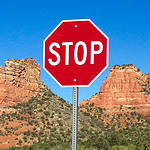
ⓒ Lauren McDonagh-Pereira Photography 2013[/caption]
Before we get into it, please consider a few quick DISCLAIMERS.
I am not a financial advisor, an art expert, a lawyer, or an accountant. Do your own research.
This post represents my personal opinions and is NOT financial advice.
I am an artist. At the time of posting, I have works minted on the Tezos and Ethereum blockchain. Links contained in this article may point to my own minted NFTs or may point to the NFTs of other artists that I have collected from. If you choose to collect NFTs referenced in this article, I may earn money from your purchase.
This post may contain sponsored ads and affiliate links. I may earn a commission if you click on an ad and make a purchase. I am not responsible for 3rd party websites.
As an Amazon associate, I earn from qualifying purchases.
Review my Privacy Policy here.
What is ChatGPT?
ChatGPT is an artificial intelligence language model developed by OpenAI. It uses advanced machine learning techniques to generate responses and have interactive conversations with users. It has been trained on a vast amount of text data from the internet to understand and generate human-like responses.
It's like Google, on steroids.
If you have a question, you can ask ChatGPT, and instead of serving you websites that might answer your question, it pulls the answers from those websites and writes you a conversational answer.
Its magical and terrifying. Powerful, and potentially devasting.
A lot of the public chatter about ChatGPT is negative. People worry about jobs that might be eliminated because ChatGPT can write, edit, and create its own content. People worry that eventually ChatGPT will turn all of social media into bot-representations of real people responding to bot-representations of other real people without the need for silly humans and their human ideas. People, myself included, make jokes about Ultron, and how ChatGPT might decide it eventually doesn't need us messy humans after all.
This is a common reaction to change and new technology throughout history. We fear what we don't understand, and we resist change. But eventually a new innovation works its way through the technology adoption life cycle, and a technology that we feared or joked about at first becomes something we can't imagine life without.
The cat is out of the bag with artificial intelligence. As of June 2023, 1.5 billion people are already regular users of chatbots like ChatGPT. Its not going away, its part of our world now.
We all have two choices, ignore artificial intelligence, until we can't anymore, or embrace it and figure out how to best use it to enhance our own lives.
I am choosing to learn, adapt, and prepare myself to conquer the economy of the next few decades.
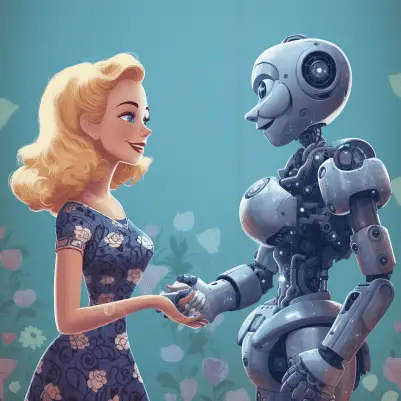
Created by Lauren McDonagh-Pereira with Midjourney AI
How Can AI Make Me A Better PHOTOGRAPHER?
I decided to ask ChatGPT to create a lesson plan that would lead me through an entire degree program in photography.
I first asked for a list of courses that could earn a photography degree, I then asked for a complete syllabus and reading list for each course, and then for a specific lesson plan for each lesson listed on the syllabi.
The results were surprisingly detailed, and completing this plan would likely dramatically improve my photography abilities.
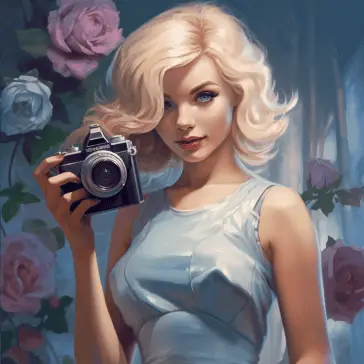
Created by Lauren McDonagh-Pereira using Midjourney AI
AN AI-Generated Photography Course List
I asked ChatGPT for a list of courses that would lead to a degree in photography.
Here is my exact prompt: "Acting as a professor of art history and photography, create a list of courses that would lead to a degree in photography, put it in a table."
ChatGPT produced a list of 14 photography courses in a suggested order of study.
Introduction to Photography - Overview of the history, techniques, and aesthetics of photography.
Digital Photography - Exploration of digital camera technologies, image editing software, and digital workflow in photography.
Darkroom Techniques - Introduction to traditional darkroom processes, including film development, printing, and enlarging techniques.
Photographic Lighting - Study of different lighting techniques, including natural light, artificial light, studio lighting, and portrait lighting.
History of Photography - Survey of the major movements, artists, and developments in the history of photography.
Documentary Photography - Exploration of the role of photography in capturing real-life events, social issues, and cultures.
Fine Art Photography - Examination of artistic approaches in photography, focusing on composition, concept development, and exhibition practices.
Advanced Photographic Techniques - Advanced topics such as alternative processes, experimental techniques, and specialized genres in photography.
Digital Image Editing and Post-Processing - In-depth study of advanced image editing techniques using industry-standard software.
Photography Business and Marketing - Introduction to the business side of photography, including marketing strategies, portfolio development, and client relations.
Photography Ethics and Copyright - Discussion of ethical considerations in photography, copyright laws, and intellectual property rights.
Portfolio Development - Focus on curating a professional portfolio that showcases the student's best work and personal style.
Internship or Field Experience - Practical experience working in a professional photography setting or completing a photography-related project.
Senior Capstone Project - Culminating project demonstrating the student's mastery of photographic techniques, artistic vision, and critical thinking skills.
With my course map in hand, I dove down a layer deeper and asked for syllabi for each course on photography.
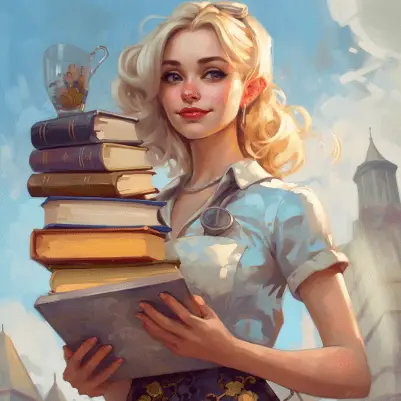
Created by Lauren McDonagh-Pereira using Midjourney AI
An AI-Generated Photography Course Syllabus
I needed a syllabus and reading list for each course, so I asked ChatGPT to build them for me.
Here is my prompt: Create a syllabus for the course, "Introduction to Photography", include a reading list.
I went through the list of all 14 courses and asked for a specific syllabi for each one.
Here is the ChatGPT-generated syllabi for Introduction to Photography:
Course Syllabus: Introduction to Photography
Course Description: This course provides an introduction to the history, techniques, and aesthetics of photography. Students will explore the fundamental concepts of photography, including camera operation, composition, lighting, and image editing. Through practical assignments and critical analysis, students will develop a basic understanding of the medium and its potential for creative expression.
Learning Objectives: By the end of this course, students will be able to:
Understand the historical development of photography as an art form and a cultural practice.
Operate a camera effectively, utilizing various settings and controls.
Apply compositional techniques to create visually engaging photographs.
Demonstrate a basic understanding of lighting principles and their impact on the photographic image.
Use basic image editing software to enhance and manipulate photographs.
Analyze and interpret photographs from a technical and aesthetic standpoint.
Communicate ideas and concepts through visual storytelling.
Course Duration: 14 weeks
Week 1: Introduction to Photography
Course overview and expectations
History of photography: From camera obscura to digital era
Discussion: What is photography? Exploring different perspectives
Week 2: Camera Operation and Basic Techniques
Understanding camera anatomy and controls
Exposure triangle: Aperture, shutter speed, and ISO
Practical assignment: Exploring different exposure settings
Week 3: Composition and Visual Elements
Rule of thirds and other compositional guidelines
Exploring visual elements: line, shape, form, texture, and color
Critique session: Analyzing composition in photographs
Week 4: Lighting in Photography
Natural light photography techniques
Introduction to artificial lighting: on-camera flash and off-camera flash
Practical exercise: Capturing different lighting scenarios
Week 5: Image Editing Basics
Introduction to image editing software (e.g., Adobe Lightroom)
Adjusting exposure, contrast, color balance, and other basic edits
Assignment: Editing and enhancing photographs
Week 6: Introduction to Genres and Styles
Exploring different genres of photography: landscape, portrait, documentary, etc.
Discussion: Influential photographers and their unique styles
Analyzing and discussing iconic photographs
Week 7: Visual Storytelling
Understanding narrative in photography
Constructing a visual story: sequence, series, and photo essays
Practical assignment: Creating a photo story
Week 8: Ethics and Copyright in Photography
Ethical considerations in photography: consent, privacy, and representation
Copyright laws and intellectual property rights
Class debate: Ethical dilemmas in photography
Week 9: History of Photography
Photography movements and significant artists: from Pictorialism to Street Photography
Guest lecture: Influential photographers and their contributions
Week 10: The Digital Age: New Possibilities
Digital advancements and their impact on photography
Exploring experimental techniques and emerging trends
Research project: Investigating a contemporary photographer
Week 11: Critique and Feedback
Peer critique session: Presenting and discussing student work
Providing constructive feedback and incorporating it into future projects
Week 12: Photography Exhibition
Planning and organizing a class photography exhibition
Preparing prints and curating the display
Public exhibition of student work
Week 13: Career Paths in Photography
Exploring diverse career options in photography
Guest speaker: Professional photographer sharing their experiences
Q&A session: Navigating the photography industry
Week 14: Final Portfolio Review and Reflection
Final portfolio submission and review
Reflecting on personal growth and progress throughout the course
Course recap and farewell
Reading List:
"The History of Photography: From 1839 to the Present" by Beaumont Newhall
"On Photography" by Susan Sontag
"Camera Lucida: Reflections on Photography" by Roland Barthes
"The Photographer's Eye" by John Szarkowski
"Ways of Seeing" by John Berger
"Photography: A Cultural History" by Mary Warner Marien
"The Genius of Photography: How Photography Has Changed Our Lives" by Gerry Badger
"The Photograph as Contemporary Art" by Charlotte Cotton
"The Digital Photography Book" by Scott Kelby
"Understanding Exposure: How to Shoot Great Photographs with Any Camera" by Bryan Peterson
Now that I had a syllabi and reading list for all 14 of my AI-generated courses on photography, I needed some specific lessons plans.

Created by Lauren McDonagh-Pereira using Midjourney AI
An AI-Generated Photography Lesson Plan
During my undergrad and grad school experiences, classes met for three hours per-week.
I decided to ask ChatGPT for specific lesson plans for each of the weeks listed on each course syllabus.
Here is my prompt: Acting as a college professor, create a specific 3-hour lesson plan for week 1 of this syllabus that includes a lecture outline, discussion topics, and a specific reading assignment:<insert entire copy and pasted syllabus here>
ChatGPT produced the following lesson plan for week 1 of Introduction to Photography:
Lesson Plan: Introduction to Photography - Week 1
Duration: 3 hours
Lecture Outline:
A. Course overview and expectations (15 minutes)
Introduce the course syllabus, objectives, and learning outcomes.
Discuss the importance of photography in contemporary society.
b. History of photography: From camera obscura to digital era (45 minutes)
Provide a historical overview of the development of photography.
Highlight significant milestones, inventions, and key figures.
Showcase influential photographs from different eras.
c. What is photography? Exploring different perspectives (30 minutes)
Engage students in a discussion on the definition and purpose of photography.
Explore how photography is used for artistic expression, documentation, storytelling, and more.
Encourage students to share their thoughts and experiences related to photography.
d. Introduction to the basic technical aspects of photography (30 minutes)
Discuss the role of camera settings, such as aperture, shutter speed, and ISO.
Explain how these settings affect exposure, depth of field, and motion blur.
Show examples and visuals to illustrate the concepts.
Discussion Topics:
What are your expectations and goals for this course?
How has photography evolved over time, and what impact has it had on society?
What do you consider to be the primary purpose of photography?
How can understanding the technical aspects of photography enhance your creative possibilities?
Reading Assignment:
"The History of Photography: From 1839 to the Present" by Beaumont Newhall
Read Chapter 1: The Invention of Photography (pages 13-39)
Activities and Exercises:
Show a slideshow of significant photographs throughout history and discuss their impact.
Conduct a hands-on demonstration of basic camera settings and their effects.
Ask students to bring in a photograph they find interesting and discuss why it resonates with them.
Homework:
Reflect on the reading assignment and prepare a short written response discussing the significance of the invention of photography.

Created by Lauren McDonagh-Pereira using Midjourney AI
The Plan
I am going to work my way through these lessons.
I will find copies of all the books on the reading list to keep up with the ChatGPT-generated reading assignments.
I will find highly ranked YouTube videos covering each of the lecture topics.
I will try to start a discussion on Twitter on each of the discussion topics.
As I go along, I will post all of the resources that I used to complete each 3-hour lesson.
Interested? Join my mailing list to stay informed about each new post so that you can follow along on this ChatGPT photography degree with me!
LEARN HOW TO CREATE YOUR OWN COURSE OUTLINES WITH CHATGPT!

Ready to take your course planning to the next level? Unlock the secrets of AI technology and revolutionize your teaching approach with our exclusive course on leveraging AI-powered tools to create comprehensive course overviews and specific lesson outlines.
In this game-changing video lesson, you’ll discover how to harness the power of artificial intelligence to effortlessly generate high-quality course content, save valuable time, and enhance your teaching effectiveness. Say goodbye to tedious manual planning and hello to a new era of efficient course development.
Don’t miss out on this opportunity to optimize your instructional design process and create exceptional learning experiences for your students. Join us now and embark on a transformative journey to become a trailblazer in AI-enhanced education.
Ready to transform your teaching? Click the link below to enroll in the course before you get left in the dust of the new AI-race!
Conclusion
Thank you for reading!
Join my mailing list to follow along with my AI-guided education journey!
Support the Site
I am building a hub to guide web2 artists into the web3 future with NFT tutorials, AI guides, social media tips, free educational materials, and a public platform for showcasing the art of the Tezos community.
This is a labor of love, but it also costs money and time to keep the site going. If you like what you I am doing, please consider showing your support by:
Sharing my articles on social media.
Linking to my articles in your content.
Purchasing a print, coffee mug, or T-shirt.
Becoming a subscriber on Twitter.
Clicking through on one of my Amazon ads and making a purchase.
Following me on Twitter.
Retweeting my Tweets.
Commenting on these posts with your feedback.
Thank you in advance for any and all support!
Sincerely,
Lauren McDonagh-Pereira
More to explore
KEEP READING
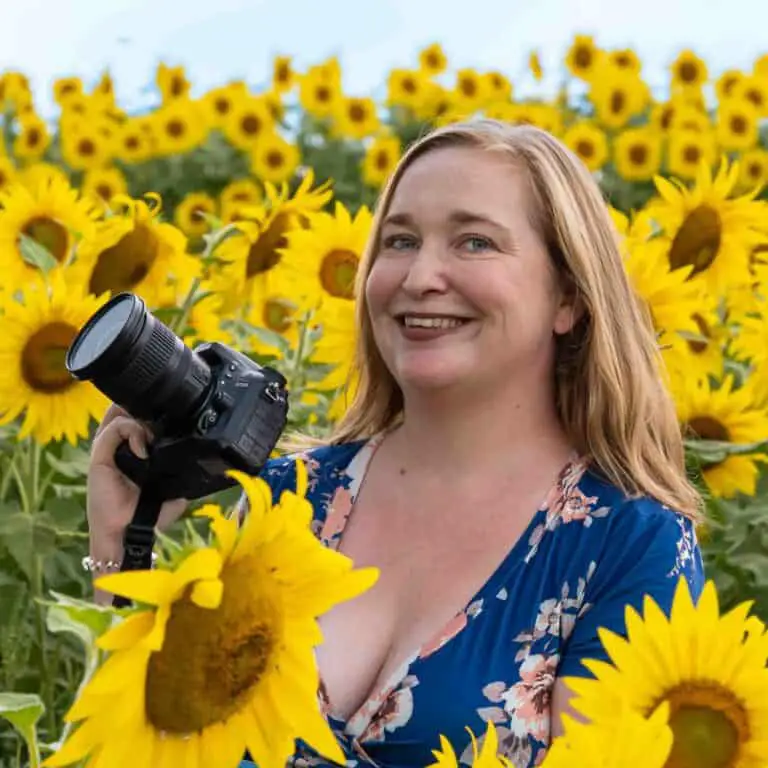
MEET Lauren McDonagh-Pereira
Lauren McDonagh-Pereira is a photographer from Massachusetts, USA. She captures the beauty of the world around her, favoring Nikon cameras and lenses. She is drawn to shooting landscapes, wildlife, nature, and people authentically enjoying life.
Twitter Twitter Instagram Linkedin Pinterest Facebook Tiktok Youtube Ethereum


%26blogName%3DLAMP%2520on%2520Web3%26blogImageUrl%3Dhttps%253A%252F%252Fstorage.googleapis.com%252Fpapyrus_images%252F5e00e82e9ae0a73d42236e1f5c2a573a.jpg%26coverPhotoUrl%3Dhttps%253A%252F%252Fstorage.googleapis.com%252Fpapyrus_images%252Ff10ee45f2e48112f4cb1fea81df748b5.png%26size%3D1024%26publishedDate%3D1686322529000&w=3840&q=75)

https://paragraph.xyz/@lampphotography/a-complete-photography-degree-as-guided-by-chatgpt